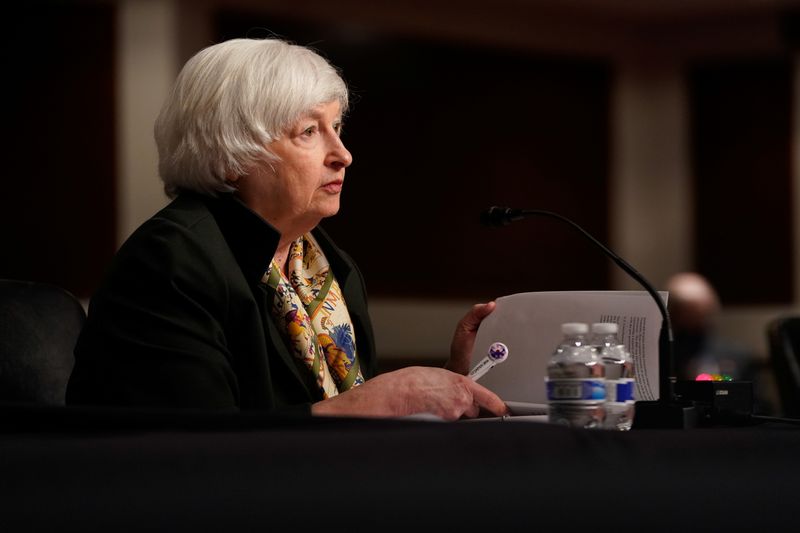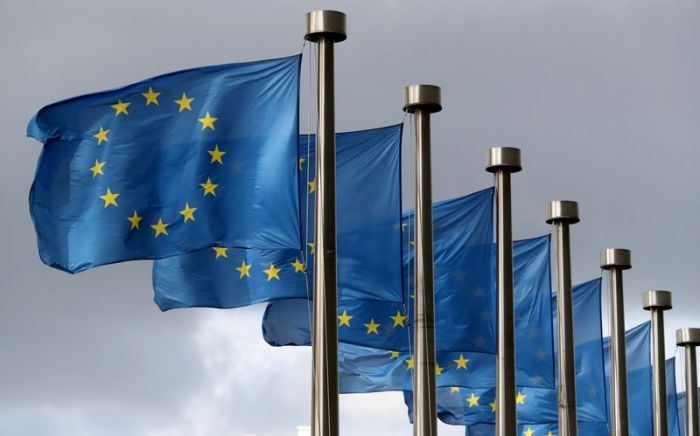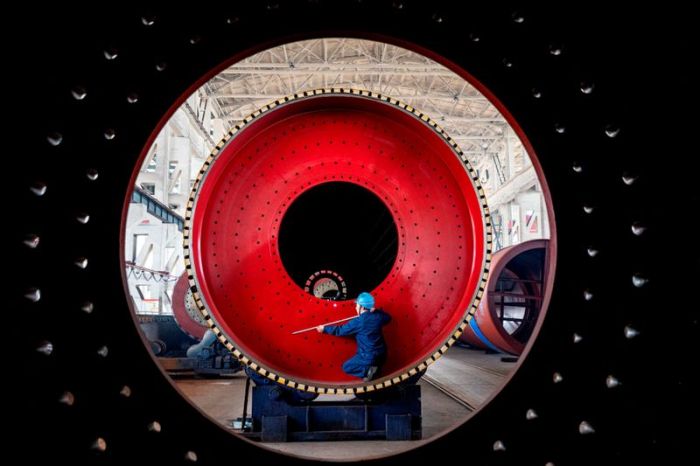WASHINGTON (Reuters) – U.S. President Joe Biden’s $1.9 trillion stimulus package in March contributed to stronger demand but is only a small factor in current higher rates of inflation, U.S. Treasury Secretary Janet Yellen told lawmakers on Wednesday.
Yellen told the House Financial Services Committee that the stimulus package clearly boosted demand but said it was not a “fair assumption” to say it overshot the need and fueled current spikes in inflation.
“It’s certainly true that the American Rescue Plan put money in people’s pockets … and contributed to strong demand in the U.S. economy, but if you look at the amount of inflation that we have, and its causes, that is at most a small contributor,” she said.
High inflation, now running at more than twice the Federal Reserve’s flexible target of 2% annually, is expected to ease in the second half of 2022, Fed Chair Jerome Powell told lawmakers at Wednesday’s hearing.
Yellen, grilled by Republican lawmakers about the inflationary impact of Biden’s response, insisted there was a “very good reason” to proceed with the stimulus package to deal with a shortage of demand that could have resulted in long-lasting joblessness and high unemployment.
“It’s been successful,” she said. “It did boost demand, and that is one of several factors that are involved in inflation.”
Yellen said the main driver of inflation was the COVID-19 pandemic and its impact in diverting demand away from services and “massively” toward goods, resulting in supply chain problems as well as a lasting effect on labor supply.
She said the pandemic had delivered an “unusual shock” to the workforce, and concerns about health issues were keeping many low-income workers from returning to their jobs, but that should recede as the pandemic was brought under control.
Biden’s plan for $1.75 trillion in further social and climate spending over the next decade was a small amount relative to the size of the U.S. economy, was paid for, and would lead to improvements that lowered deficits, Yellen said.
“It puts in place investments that will continue to bring down deficits,” she said. “It will improve the supply side of the economy, which is, in the long run, a factor that will tend to mitigate ongoing inflationary pressures.”
Yellen sparred for a second day with Republican lawmakers who cited a Congressional Budget Office estimate the “Build Back Better” legislation would add $367 billion to U.S. deficits over a decade.
She stuck to her argument that the CBO estimate does not include the effects of increased Internal Revenue Service enforcement, which the Biden administration has estimated would boost revenues by $400 billion over a decade.
(Reporting by Andrea Shalal, Ann Saphir, Lindsay Dunsmuir and David Lawder; Editing by Mark Porter and Bernadette Baum)

























